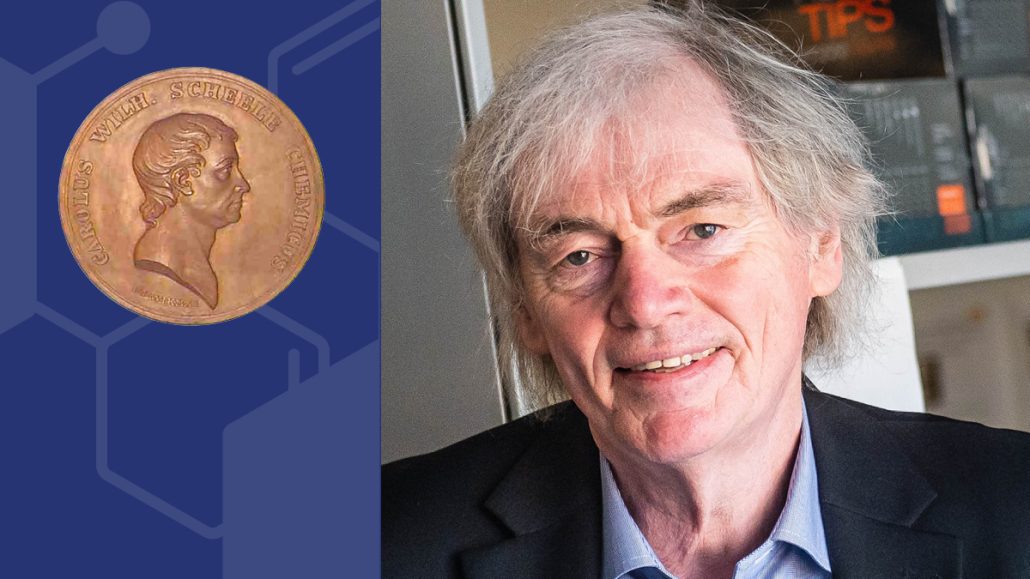Meet the speaker - Medical Doctor Björn Pilebro

Get a glimpse of the research that you will get the opportunity to learn more about at the Scheele symposium! The Scheele laureate Professor Pieter Cullis is a pioneer in the design, development and optimization of lipid nanoparticles (LNPs) for drug delivery and we will introduce the guest speakers who are all active in related fields. One of them is Medical Doctor Björn Pilebro, Umeå University:
How does your research relate to Prof. Cullis’s scientific work?
My field of research is hereditary ATTR amyloidosis which is a systemic disease where a circulating protein, TTR, misfolds and is deposited around the body of affected patients causing damage to primarily the heart and the nerves. Development of novel therapies targeting the expression the TTR gene in the lever has led to remarkable progress in treating the disease. In Umeå we have participated in phase 1 trials of substances involving both siRNA and CRISPR/Cas9 techniques to achieve suppression of TTR production. These substances are both transported to the liver utilizing LNPs. We have also performed a small local study focussing on possible mechanisms explain lack of response to an LNP based pharmaceutical.
Can you explain the potential applications and impact of your research for drug discovery/drug development?
Im not sure if it is correct to say “my research”, Im in no way involved directly in drug development. The projects in which we participate evaluating the possibility of first gene suppression (siRNA), and then gene editing and knock out in vivo in humans do however have a profound impact on future drug development as they open completely new doors and provide tools for an entirely new treatment paradigm. Out part in this development has been knowledge and input regarding ATTR amyloidosis and recruitment and follow up of research patients.
I am convinced that ATTR amyloidosis will be seen as a sort of “pilot project” in a near future when the use of gene therapies have been expanded to a number of other areas.
How will your research contribute for the benefit of patients?
The projects utilizing LNPs in combination with siRNA and have shown that TTR knockdown is an effective way of halting and maybe reversing disease progression in patients. And of course that it is possible to target specific genes in the liver using siRNA. Data regarding reliable clinical benefit of CRISPR/Cas9 has yet to be produced, but the phase 1 study in which we participated proved that the concept works and appears safe, so it had opened of the field for studies in larger patient cohorts and other diseases.
What are some recent breakthroughs or discoveries that will advance in your field?
Last fall we published limited data on the effects of the CRISPR/Cas9 gene editing in ATTR amyloidosis. Two phase 3 trials are ongoing. For the field of ATTR amyloidosis, one thing I am very interesting in seeing, are results from an ongoing large GWAS study hoping to shed some light on why the disease has such a variable clinical expression.
What advice would you give to aspiring researchers interested in pursuing a career in your research area, and how can they contribute?
I started my PhD studies after having diagnosed a number patient with ATTR amyloidosis and realising that not only were there no available treatments for the disease, there were also no real evidence concerning symptomatic treatment nor diagnostic approach. Being able to see a clear benefit of answering unanswered questions is what has motivated me. However, the longer I have worked in or around research, the more I have come to see the immense impact of unbiased curiosity. Had not interested scientists wondered why strange DNA repeats existed in bacteria nor why purple flowers turned white and pursued answers to those questions, we would not have had siRNAs or CRIPR/Cas9. My advice would be to do something that you find fascinating or relevant.
Find out who else will be speaking at this year’s symposium
This year’s symposium features experts within the field of Lipid nanoparticles, sharing their insights, research, and real-world experiences. Visit the page to explore exclusive conversations with additional presenters. Get a behind-the-scenes look at their work, what inspires them, and what they’ll be bringing to the stage.
Meet this year’s speakers
This year’s Scheele Award events
The Scheele Symposium – Lipid nanoparticles: Revolutionizing drug delivery

Welcome to the Scheele Symposium in honour of the 2025 Scheele Award laureate, Professor Pieter Cullis.
The symposium focuses on various aspects of his research which spans over several decades and has had a significant impact on both the scientific community and patients.
Young Scientist Day

You are welcome to apply to this year’s Young Scientist Day in drug formulation and nanomedicine!
This year’s winner of the Scheele Award, Pieter Cullis will present his research and reflection from different parts of his carrier during Young Scientist Day, hosted by the Swedish Pharmaceutical Society on November 12, 2025, as a satellite event to the Scheele Symposium.